EU Plans Proposing Extension of Gas-Storage Goals to 2027
(Bloomberg) -- The European Commission plans to seek an extension of the region’s binding gas-inventory targets until 2027 to help ease continuing supply concerns, according to people familiar with the matter.
The European Union introduced the goals for its natural gas stores at the height of the 2022 energy crisis to ensure adequate supplies during the coldest periods. This system expires at the end of 2025, and the bloc’s executive arm is working on a draft measure prolonging it that would be presented in a few weeks, said the people who asked not to be identified as the information isn’t public.
The proposal will need approval from member states and the European Parliament in a process that could wrap up by the end of June, they said.
Reuters reported on the discussions earlier Thursday. The commission has a policy of not commenting on draft measures.
Europe’s gas storage has been in focus this winter as the continent burns through its reserves faster than normal, pushing up prices. The move comes as Germany’s market manager Trading Hub Europe is mulling subsidies for rebuilding inventories, adding pressure on other gas-storing nations in Europe looking to restock. Italy has also said it plans an early start to replenishing storage.
The discussion also signals that concerns about supply and storage levels are set to linger into next year. Gas for delivery in summer 2026 has been trading at a premium to winter that year, and a similar spread between this summer and next winter surged this week.
The main target is for EU underground storage sites to be 90% full by November, with intermediate thresholds for February, May, July and September. Maintaining sizable fuel inventories has become crucial for Europe’s energy security since it lost most Russian pipeline flows, as it provides a cushion against demand spikes during the heating season.
EU’s underground storage caverns are now just over 58% full compared to about 74% a year ago. While there’s no risk of an immediate shortfall, the speedy depletion makes stockpiling more challenging.
©2025 Bloomberg L.P.
KEEPING THE ENERGY INDUSTRY CONNECTED
Subscribe to our newsletter and get the best of Energy Connects directly to your inbox each week.
By subscribing, you agree to the processing of your personal data by dmg events as described in the Privacy Policy.
More gas & LNG news

US Considering Scrapping Multibillion-Dollar Power Auctions

ADNOC successfully completes $2.84 billion marketed offering of ADNOC Gas shares
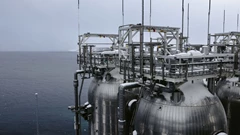
Scientists Say EU Carbon Market Should Include Removals Like CCS
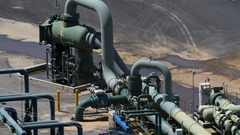
Trump Will Allow for More Gas Pipe Expansion, Southern CEO Says

EU Trade Chief Says Ready to Work With US on Lower Tariffs
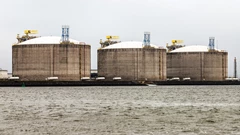
EU to Look at More ‘Flexible’ Filling of Gas Storage Post-2025
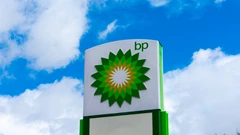
bp begins production from Raven Phase 2, offshore Egypt
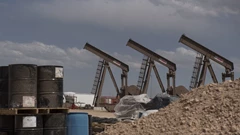
Diamondback Nears Permian Deal to Buy Shale Producer Double Eagle

Australia’s Iron Ore Hub Reopens, Rio Mines Resume After Cyclone
















